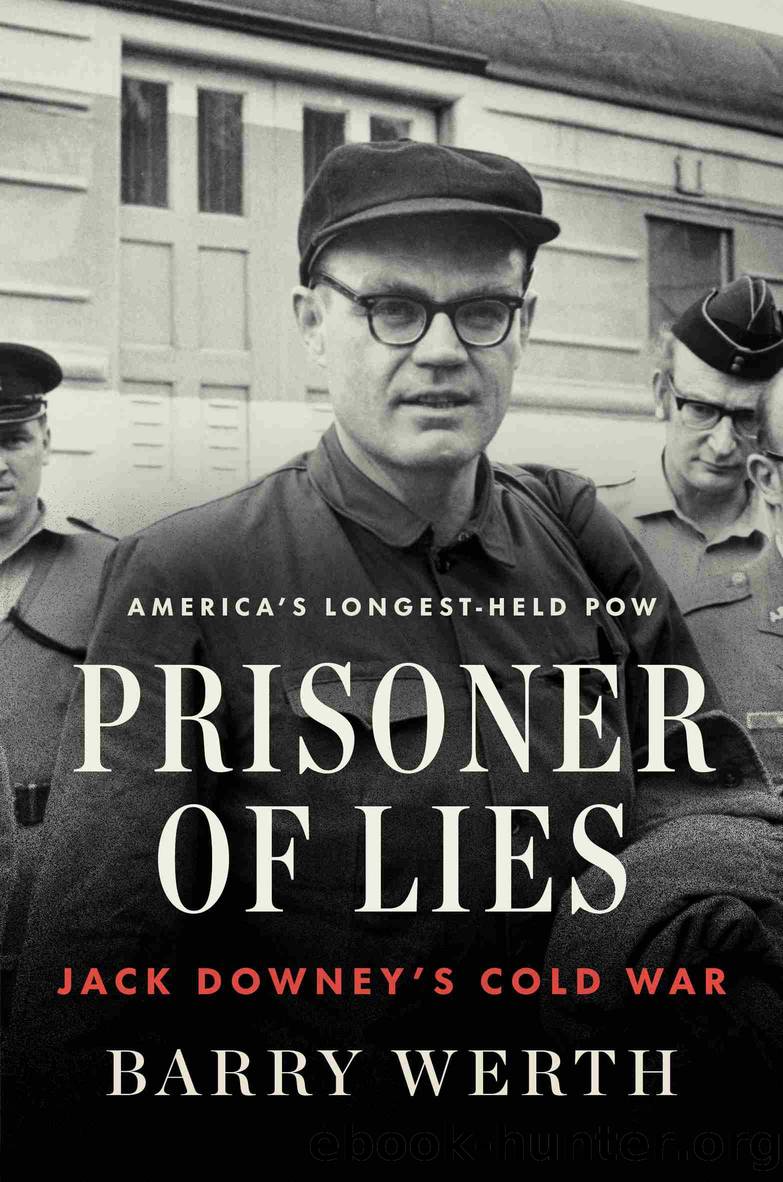Prisoner of Lies by Barry Werth

Author:Barry Werth
Language: eng
Format: epub
Publisher: Simon & Schuster
Published: 2024-08-20T00:00:00+00:00
* * *
In mid-July, the Chinese announced the release of Bishop James Walsh, a sixty-seven-year-old Catholic missionary who spent twelve years in a Shanghai prison allegedly for spying and subversion. In 1958, Walsh had received a twenty-year sentence for plotting to âoverthrow the new China.â Nixon, as vice president, had denounced the charges as âtrumped upââthe same epithet Foster Dulles used to defend Downey and Fecteau but in Walshâs case was accurate. Walsh confessed to sending money out of the country and helping US and Vatican interests in China, but the Chinese had made him out to be a ruthless, sinister spymaster. Beijingâs leniency sent a signal to Washington that waiving prison terms for other Americans still held in China might be open to discussionâa dramatic reversal of policy going back to 1955.
State radio also reported that another imprisoned spy, fifty-year-old Hugh Redmond, had committed suicide in April, slashing himself with an American-made razor blade. Beijing said officials had rushed âthe culprit Redmondâ to a hospital, but by then he had bled too much to be saved. Jack âdidnât believe that for a minute,â he later wrote. â[Redmond] had defied the Chinese so vehemently that they never even attempted to subject him to the innocuous political education classes. He was indomitableâ¦. I assumed Redmond had died of a heart attack and that the Communists were embarrassed to admit that a prisoner in their care had died of illness. Somehow it did not occur to them that suicide was an even more damning indictment of their custody.â
The simultaneous disclosure of Redmondâs cruel fateâthe Chinese sent an urn with his ashes to his family, but decades before DNA tests, the CIA had no way to determine if the remains in fact were hisâtempered Kissingerâs elation about Walshâs release, but he recognized the timing as âsymbolic. It coincided with, and neatly counterbalanced, an announcement of the reopening of talks with the Soviet Union on the navigation of border rivers,â he wrote. Chinaâs next diplomatic signal proved easier to misread. On October 1, Zhou led Edgar Snow and his wife to stand at Maoâs side at the Gate of Heavenly Peace, so as to be photographed together with Mao observing the annual anniversary parade. Kissinger would eventually realize that Mao was indicating that relations with the US now had his personal attention, but he lamented that âwe had missed the point when it mattered. Excessive subtlety had produced a failure of communication.â
Nixon and Kissinger secretly had reduced the conduct of foreign affairs to a two-man operation, outmaneuvering, marginalizing, and keeping in the dark Congress and, most pressingly, Foggy Bottom, where the Taiwan lobby remained entrenched. Kissinger told Nixon that signals with the Chinese were âall very wellâ but a confidential line of high-level communication was urgent, especially in light of Maoâs accelerating overtures to the Soviets. In late October, Nixon met in Washington with Pakistani president Yahya Khan, who was about to travel to Beijing. He asked Khan to convey a personal message that he considered improved relations between the two capitals âessential.
Download
This site does not store any files on its server. We only index and link to content provided by other sites. Please contact the content providers to delete copyright contents if any and email us, we'll remove relevant links or contents immediately.
| China | India & South Asia |
| Japan |
Fanny Burney by Claire Harman(26602)
Empire of the Sikhs by Patwant Singh(23084)
Out of India by Michael Foss(16853)
Leonardo da Vinci by Walter Isaacson(13336)
Small Great Things by Jodi Picoult(7139)
The Six Wives Of Henry VIII (WOMEN IN HISTORY) by Fraser Antonia(5514)
The Wind in My Hair by Masih Alinejad(5095)
A Higher Loyalty: Truth, Lies, and Leadership by James Comey(4960)
The Crown by Robert Lacey(4814)
The Lonely City by Olivia Laing(4801)
Millionaire: The Philanderer, Gambler, and Duelist Who Invented Modern Finance by Janet Gleeson(4478)
The Iron Duke by The Iron Duke(4354)
Papillon (English) by Henri Charrière(4274)
Sticky Fingers by Joe Hagan(4197)
Joan of Arc by Mary Gordon(4109)
Alive: The Story of the Andes Survivors by Piers Paul Read(4031)
Stalin by Stephen Kotkin(3965)
Aleister Crowley: The Biography by Tobias Churton(3640)
Ants Among Elephants by Sujatha Gidla(3467)
